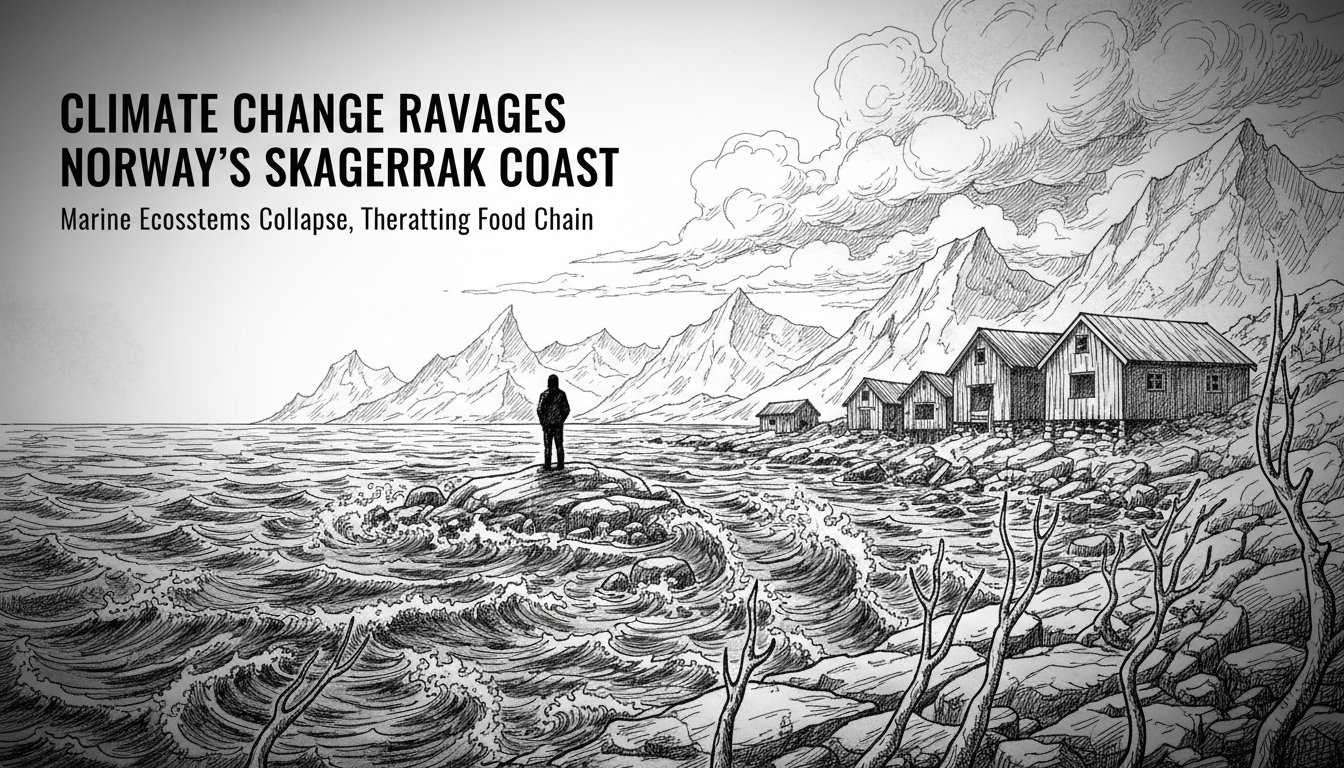Climate Change Ravages Norway's Skagerrak Coast
Norway's Skagerrak coast suffers rapid environmental decline as climate change damages marine ecosystems. Kelp and algae growth has weakened dramatically, threatening the entire food chain. Increased rainfall darkens coastal waters and accelerates the damage.

Norway's Skagerrak coastline faces severe environmental decline. A new report reveals kelp, seaweed and large algae grow poorly now. The entire marine food chain is threatened.
The environmental monitoring program shows rapid deterioration in Skagerrak's waters. The situation worsened dramatically in just three years.
Hilde Singsaas leads Norway's Environment Directorate. She said marine habitats for fish and other species show dramatic weakening.
Increased rainfall drives this negative trend. More rain washes particles, nutrients and humus into the sea. This makes coastal waters darker.
The Skagerrak Strait connects the North Sea to the Baltic Sea. It borders southern Norway and Sweden. This vital waterway supports rich marine ecosystems now under threat.
International readers should know Norway's coastline is crucial for fishing industries. Climate impacts here affect seafood supplies across Europe.
Environmental reports often show gradual changes. This one reveals rapid damage happening right now. Coastal communities face real economic consequences from these changes.